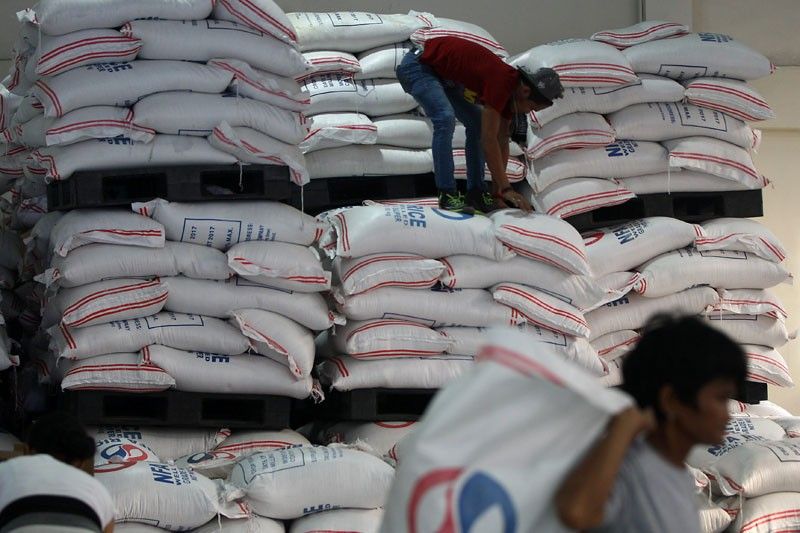Rice tariffication to slash inflation by 0.4% this year

MANILA, Philippines — The Bangko Sentral ng Pilipinas (BSP) expects a significant reduction in inflation with the immediate passage of the rice tariffication bill in Congress, as the staple accounts for about nine percent of the total consumer basket.
BSP Deputy Governor Diwa Guinigundo said the proposed amendments to Republic Act 8178, otherwise known as the Agricultural Tariffication Act of 1996, could reduce inflation this year by 0.4 percentage points if implemented in the third quarter, and by 0.2 percentage points if implemented in the fourth quarter.
For next year, Guinigundo said the replacement of the quantitative restrictions on rice imports with tariff would slash inflation by 0.6 percentage points.
He said one of the mitigants on rising inflation is the imposition of tariff on rice imports.
“If Congress and the Senate is able to pass the rice tariffication bill to be implemented in the third quarter, we expect some reduction by at least 0.4 percentage point for 2018 and next year around 0.6 percentage points. If this will be done in the fourth quarter, we expect 0.2 percent point reduction this year,” he said.
The BSP, together with other government agencies including the Department of Finance (DOF), as well as the National Economic and Development Authority (NEDA) have been pushing for the passage of the rice tariffication bill in Congress.
The move is seen as a significant step in reforming the agricultural sector by removing unnecessary government intervention in the rice market.
Once the quantitative restriction is replaced by predictable tariffs, NEDA expects that the private sector can respond more effectively to market signals and government can focus on regulating to ensure food safety and fair market competition.
On the other hand, based on the DOF estimates, the removal of the rice quantitative restriction could slash retail prices of rice by as much as P7 per kilo.
Likewise, rice tariffication may help mitigate the impact of the implementation of RA 10963 or the Tax Reform For Acceleration and Inclusion (TRAIN) Law on consumer prices and at the same time lower inflation.
The central bank raised its inflation forecast to 4.6 for this year and to 3.4 percent for next year.
Inflation rose up to a fresh five-year high of 4.5 percent in April from 4.3 percent in March due to rising global oil prices and the impact of the implementation of the new tax law.
This brought the average inflation in the first four months to 4.1 percent, exceeding the two to four percent target set by the BSP.
- Latest
- Trending




























